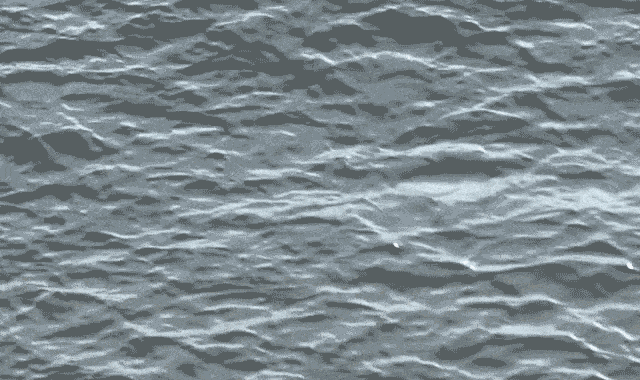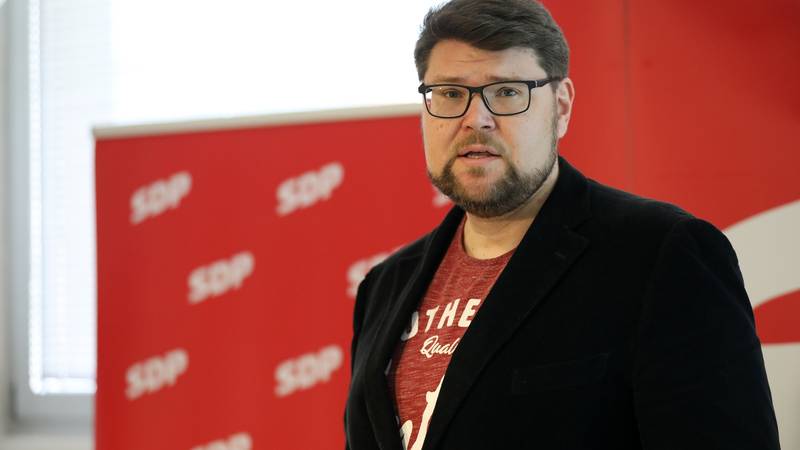‘Maintenance work Dutch refineries are dangerous – stop immediately’
:format(webp)/s3/static.nrc.nl/wp-content/uploads/2024/09/13122557/data121641602-0d70f7.jpg)
Maintenance work on Dutch refineries is extremely dangerous and must stop immediately. This warns the Dutch Safety Board (OVV) in an exceptionally critical report. The sector has had too little attention to the dangerous circumstances in which employees have to operate – costs and environmental benefits were considered more important.
The reason for this conclusion is a fatal accident at Zeeland Refinery that investigated the OVV. On Friday, February 3, 2023, an employee of maintenance company Time Service Catalyst Handling (Time) died in cleaning a reactor. In reactors, raw oil is converted into diesel and LPG using chemicals. The Netherlands has the second largest refining sector in Europe, mainly in the port of Rotterdam. According to the OVV, 23 reactors, which must be regularly cleaned and maintained, are located in the six Dutch refineries.
Cleaning is complicated because the catalytic material ignites as soon as it comes into contact with oxygen. The reactor in Zeeland was filled with nitrogen, after which an employee with oxygen helmet dropped the 30 meter deep reactor to loosen the chemicals of the wall. After 2.5 hours of work in the hot, dusty space, he was buried under chunks of catalyst material, which caught fire because oxygen escaped from his helmet. Colleagues tried to save the man, it didn’t work.
After 2.5 hours of work in the hot, dusty space, he was buried under chunks of catalytic materials, which caught fire because oxygen escaped from his helmet
The OVV now concludes that this method is ‘inherently unsafe’. The cleaning under ‘Inert atmosphere’ – where employees work in a tens of meters deep reactor filled with nitrogen – must therefore stop immediately, says vice -president of the Erica Bakkum OVV. The Council researchers interviewed those involved and experts from the sector. « The dangers are known to everyone, » says Bakkum. A « diver » can misstep and fall down the stairs, burst, burn and stitch. « But the chance that such a thing happens is not very high. » The OVV concludes that if something happens that is soon fatal. If someone is unconscious at the bottom of the reactor and has to be towed up, salvation is ‘virtually excluded’.
Read also
Unable to work, health damage, environmental violations. How do tank cleaning companies get away with it?
The call to stop this method immediately is ‘unique’ for the OVV. As far as you can find out, the OVV did not make such a firm statement before, says Bakkum. « We always give room to the sector to come up with better safety measures. » The fact that the OVV does not leave that space now has to do with the extreme circumstances under which this work must be done. « That employee is in a hot space there, does heavy physical work, where the vision is bad and he can become disoriented. » Breathing in a few breaths of nitrogen can already be fatal. « This is a class of work that you think: is this human enough? »
According to the research council, companies have long opted for the cheapest and most environmentally friendly solution. There are alternatives, but they usually take more time and do not work well enough. Every day that a reactor for maintenance is stopping costs money. In addition, the catalyst material is worse to recycle if it is removed from a reactor with alternative methods. That also makes alternatives more expensive, and worse for the environment.
Male with an oxygen helmet
Zeeland Refinery, a company of the French Total and the Russian Lukoil, had explicitly asked for cleaning methods in the tender where the reactor is filled with nitrogen. This application « suggests that Zeeland Refinery left no room for alternative methods that would make the work safer, » writes the OVV. According to Zeeland Refinery, that space was there, if a provider made a proposal for this. Time is a company that, according to the OVV, « largely focuses » on inert entrance – Time stands for ‘Total Inert Maintenance and Engineering’ and in the company logo there is a man who enters a reactor with oxygen helmet.
The Dutch Safety Board often sees that contract negotiations mainly concern the price and time. Bakkum: « We would like to pay attention to safety more prominently on the agenda in tenders. »
This is a class of work that you think: is this human enough? Erica Bakkum Vice -President OVV
After the accident, the Labor Inspectorate stopped maintenance. When it turned out that the reactor could also be cleaned without having staff descended into the reactor filled with nitrogen, the work resumed. Total says it has since stopped worldwide with Inerte Entry, also at Zeeland Refinery. According to the OVV, some of the five other Dutch refineries still use this method.
Companies are required by law to prevent or limit the risks for employees as much as possible. The Labor Inspectorate supervises this. The role of the Labor Inspectorate has not been investigated by the OVV. The working methods of Zeeland Refinery are approved by the Labor Inspectorate.
Schematic representationDischarging a reactor
Always leashed
The companies involved had strict safety regulations: for example, employees always had to stay on a leash, and the catalytic material that is attached to the walls should not come above hip height. But in practice, the OVV, employees sometimes deviate from those instructions. For example, they can become entangled in their safety line and therefore disconnect him.
On the morning of the accident, the employee’s fuse line was disconnected, and he stood in a place where the catalyst material towered above him. Employees often have good reasons to deviate from regulations, says Bakkum, because the work is just a little better, faster or easier. « Companies must pay more attention to the question: how is it really going in the workplace? » According to Bakkum, they cannot assume that employees always comply with the regulations.
Read also
Harmful substances? That determines the tank cleaning itself
Criminal investigation
Moreover, the accident at Zeeland Refinery does not stand on its own. In recent years, employees have been killed in various European countries in cleaning reactors filled with nitrogen. Retamities are hardly shared, the OVV saw. Zeeland Refinery did not know about these accidents. According to the OVV, Zeeland Refinery is now taking the initiative at European level to share accidents within the industry.
The Labor Inspectorate and the police investigated the accident. The Public Prosecution Service currently assesses whether it is proceeding to prosecute. The companies involved both conducted their own investigation into the cause of the incident. Time has checked, among other things, after the accident whether the safety line can be confirmed in such a way that the employee can no longer release it himself. The company would work on alternative methods to clean reactors.
/s3/static.nrc.nl/wp-content/uploads/2025/04/08163219/web-1409ZATeco_tank5.jpg)
tank cleaning
Behind the scenes
The tank cleaning companies
Labor accidents, discharges via the sewer in river water, a poison cloud that spreads throughout the Netherlands. Tank cleaning companies, which clean hundreds of tankers with chemicals every day, withdraw from control and rules. How is that possible?


/s3/static.nrc.nl/images/gn4/data133305174-ec8c91.jpg)

/s3/static.nrc.nl/images/gn4/data133306995-b21914.jpg)




